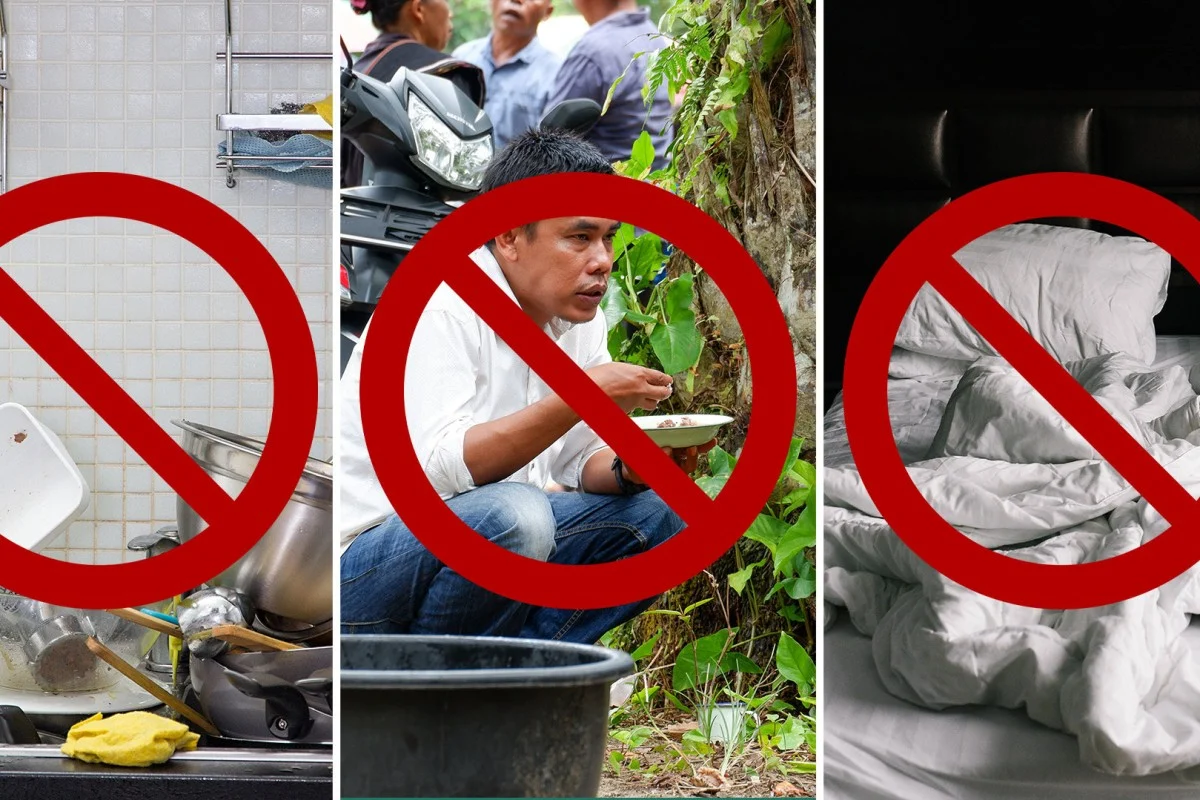In an unprecedented move, Puge County in China’s Sichuan province has introduced a controversial policy imposing fines on residents for not completing basic household chores. The regulation, titled “Fine Standards for the New Countryside for Human Settlement Environment,” aims to uplift living standards in the region by penalizing behaviors that contribute to unsanitary and untidy living conditions.
Under the new policy, residents face a fine of 10 yuan (US$1.4) for not making their beds or leaving dishes unwashed. A higher penalty of 20 yuan is imposed for squatting while eating. The regulation details 14 categories of behavior subject to fines, including a five-yuan charge for intact spider webs and varying fines for clutter or faeces in courtyards.
The county government emphasizes that repeat offenses will result in doubled fines. The initiative is part of a broader effort to address issues of “dirty, messy, and disorderly living conditions” prevalent in many rural homes. Local officials have noted that such conditions often lead to health risks, including the spread of diseases.
Despite the policy being in its drafting stage, it has already sparked widespread debate across China. Supporters argue that such measures are necessary to transform deep-rooted habits and improve living conditions, particularly in impoverished areas. The vice-director of the village explained that the fines serve as a deterrent and the collected funds will be reinvested in the community to assist households in maintaining cleanliness.
Critics, however, see this as an excessive intrusion by the government into private lives. They argue that such minute monitoring of daily activities oversteps the boundaries of governance. Skeptics also question the real intention behind the fines, suspecting them to be a revenue-generating scheme for the local government.
The Liangshan Yi autonomous prefecture, where Puge County is located, is known for its economic struggles and is often highlighted in state media as a focal point for China’s poverty alleviation and rural revitalization efforts. The introduction of these fines adds a new dimension to the ongoing discussions about the best approaches to foster sustainable development in rural China.
The policy highlights the complexities of governance in rural areas, where changing longstanding customs and habits can be challenging. The debate continues as citizens and policymakers grapple with finding a balance between enforcing public health standards and respecting personal freedoms.
READ MORE:
